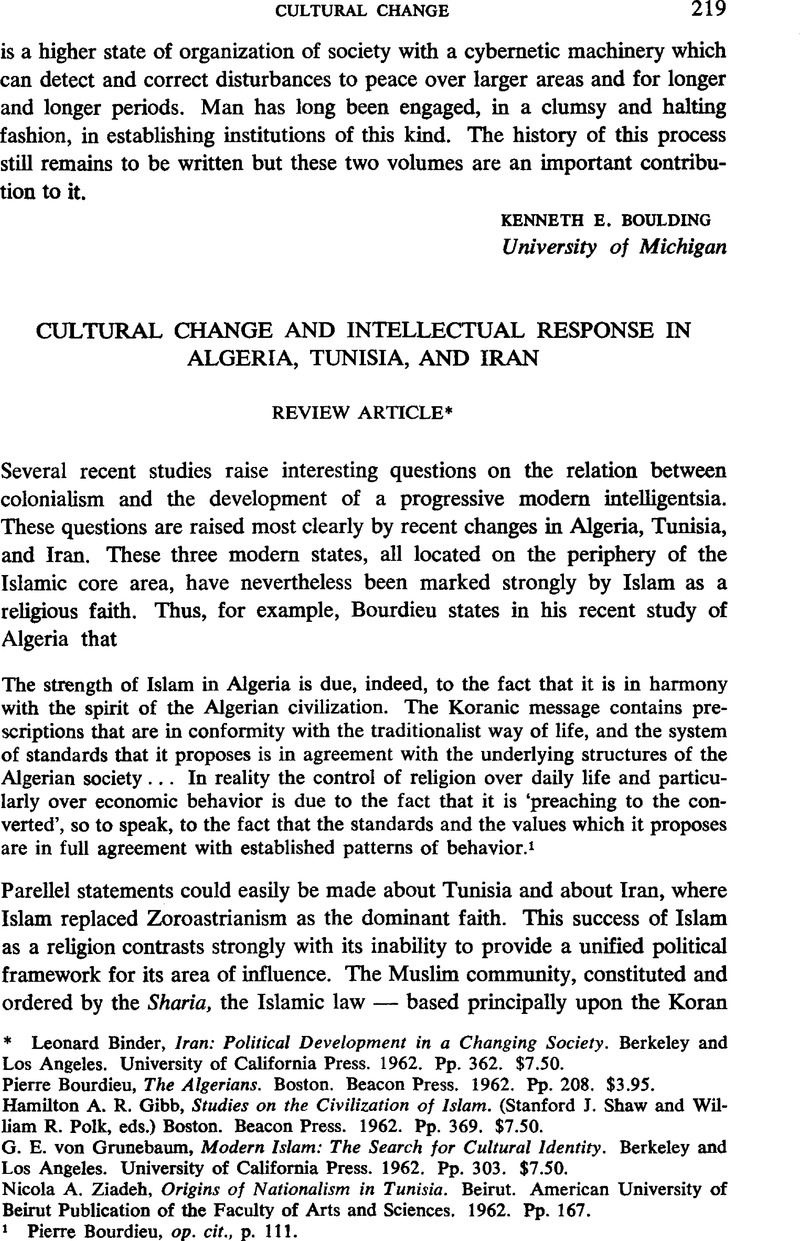No CrossRef data available.
Article contents
Cultural Change and Intellectual Response in Algeria, Tunisia, and Iran
Published online by Cambridge University Press: 03 June 2009
Abstract

- Type
- Islam
- Information
- Copyright
- Copyright © Society for the Comparative Study of Society and History 1964
References
1 Pierre Bourdieu, op. cit., p. 111.
2 Quoted in Barboun, Nevill (ed.), A Survey of North West Africa (The Maghrib) (London, 1959), p. 213.Google Scholar
3 See particularly chapter three of Nicola A. Ziadeh, op. cit.
4 Pierre Bourdieu, op. cit., p. 184.
5 Quoted in G. E. von Grunebaum, op. cit., pp. 153–154.
6 Ibid., p. 154n.
7 Bourguiba, Habib, “Nationalism: Antidote to Communism”, Foreign Affairs (07, 1957) pp. 646–653.Google Scholar
8 Quoted in Sigmund, Paul E. Jr., The Ideologies of the Developing Nations (New York, 1963), p. 141.Google Scholar
9 Pierre Bourdieu, op. cit., pp. 188–192.
10 See Paul E. Sigmund, Jr., op. cit., pp. 3–40.
11 Sands, William, “Prospects for a United Maghrib” in Kerekes, Tibor (ed.), The Arab Middle East and Muslim Africa (New York, 1961).Google Scholar
12 See Zartman, I. William, “The Sahara, Bridge or Barrier?” International Conciliation (01), 1963, pp. 34–41.Google Scholar
13 Leonard Binder, op. cit.
14 Ibid., pp. 349–350.
15 My translation from Ettelaat Hava'i, January 4, 1963.
16 See my “Modernization and Social Research in Iran”, The American Behavioral Scientist (March, 1962), pp. 17–20.
17 For example, Farhang Nakha'i, Islam as Nazar-e Torat va Enjil (Meshed, n.d.)
18 See G. E. von Grunebaum, op. cit., pp. 248–288.


